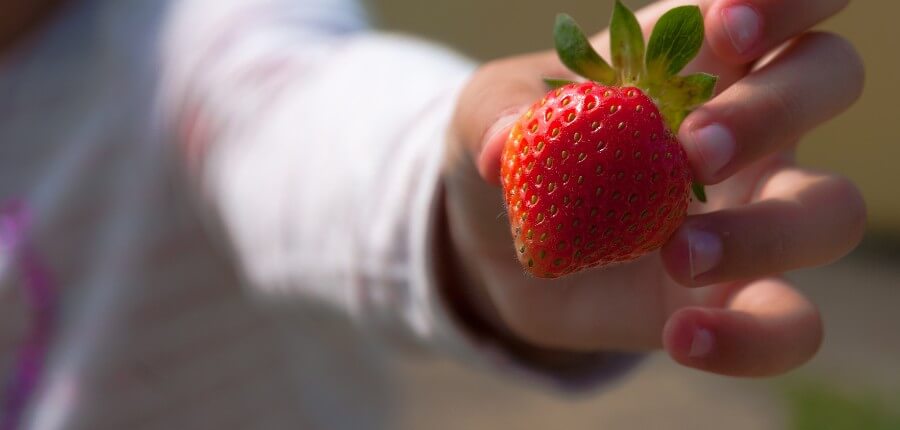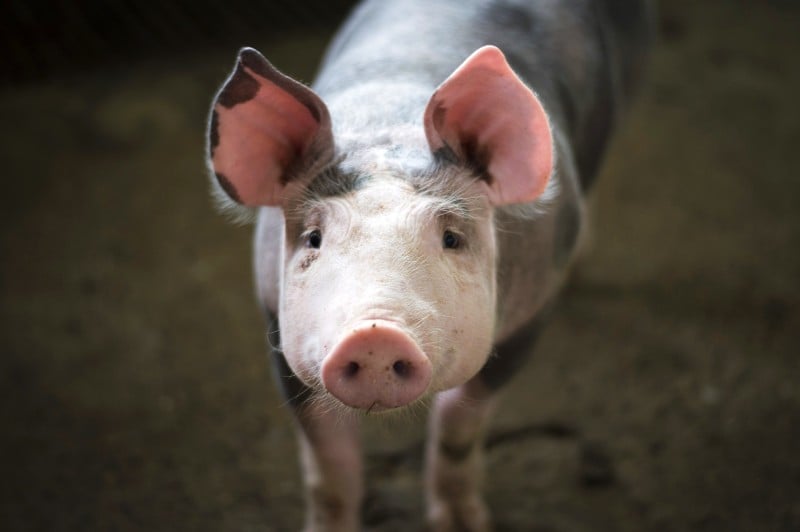by Jeremy Yunt
Over my 32 years as a vegetarian (and vegan for the majority of that time), I’ve been astounded by the number of times people have said to me, “I could never be vegetarian—I just couldn’t give up meat.”
Why I should be surprised by this sentiment now is somewhat perplexing, I must admit. Up until the age of 18, I was rather addicted to meat myself—and I don’t use “addicted” lightly. The appropriateness of this word comes out in the very way we describe our relationship to meat-eating: “I couldn’t give it up.” It’s as if it has a grasp on people—and one of those people was me. If you had told me in high school that I would become a vegetarian, I would have laughed at you. Without any exaggeration, a day without meat was an absolute impossibility for me.
But in 1987, that all changed. I read John Robbins’ Diet for a New America and decided on the spot never to eat meat again. It’s turned out to be the best decision that I’ve ever made in my life. But what was it that kept me from making this momentous decision sooner?
At the time, I thought it was ignorance, and this was certainly part of it. I was unaware of the deeply negative humanitarian, health, and environmental aspects of our use and abuse of animals, but I’ve come to an awareness over the years of an even more potent force than ignorance in keeping people from changing their eating habits: enculturation.
I grew up in the Central Valley of California, where my grandfather had a working family farm, complete with pigs, cows, chickens, fruit trees, and a commercial almond and walnut orchard. It was there that I witnessed the yearly ritual: The local butcher would drive out to the farm, lay out a large plastic sheet, slowly walk out one of the cows from the barn, and then blast the unsuspecting animal in the head with a rifle. Thud! I stood and watched this numerous times, never once questioning it or wondering whether it was necessary or painful to the animal. As a small child, standing next to my father and grandfather, it just was—like watching my grandfather grab a chicken by the neck, place the bird on a wooden block, and then chop the head off with a small hatchet. We’d watch the headless body run around for a while, before the bird finally collapsed to the ground. If my family did this, I thought to myself, it must be right.
The vast majority of us choose to avoid seeing such scenes, and there is a reason for this: Humans are deeply moral creatures. In fact, our sense of morality, along with many other factors, is what defines us as human. We have the complete freedom and ability to choose what we ought to do. And this exposes why the “appeal to nature” fallacy, wherein people claim that eating animals is “natural” because other animals eat each other, is so weak. In addition to being nonsensical, this attempt to justify taking another sentient being’s life is also largely rooted in denial.
You see, because humans have a moral nature—and because almost everyone claims to “love” animals—to kill and eat them places people in a bit of a quandary. For example, how does one justify having a dog as a pet and yet killing and eating a pig? We know pigs are smarter than dogs and feel just as much pain. In short, it’s done by living in a culture saturated by carnism—a term coined in 2001 by psychologist Dr. Melanie Joy.
Everyone has heard of veganism, but what is carnism? Essentially, it’s the dominant cultural narrative that says artificially raising (literally artificially inseminating), killing, and then eating other sentient life forms is the “natural” state of affairs. This belief system is so pervasive, culturally ingrained, and dominant that most don’t even recognize it—and this is its power over people’s thinking.
Because the term veganism was coined and is used as a special description of a seemingly unusual behavior—as opposed to the widely accepted carnism—it appears that not eating animals and their byproducts is somehow unnatural and an aberration. However, it’s quite confusing how the majority of people who deem the killing and eating of other animals “natural” are the same people who cannot stomach watching the act of taking the life they will so easily eat. The innate revulsion I’ve witnessed in meat-eaters who watch animals being slaughtered is palpable and undeniable. People literally do not want blood on their hands, and if they had to do the killing themselves, I have no doubt that very, very few would be up to the task. This is why factory farms and slaughterhouses are so carefully closed off from public scrutiny and why there are “ag-gag” laws—statutes crafted by large agribusiness corporations to keep the public from discovering the dark secrets of the meat and dairy industries.
Carnism exists because of the majority’s unwillingness to witness and acknowledge the immoral acts we all know occur but which we can’t bear to confront. As such, I would argue that participation in carnism is an inauthentic, distorted expression of our true natures and moral potential. If carnism truly is our “natural state,” this seriously calls into question our supposedly unique intelligence—for what rational animal would embrace a way of eating that systematically destroys its home, leads to global health epidemics and viral pandemics, and necessitates the hiding of this very system from public view because it’s morally reprehensible to those engaging in it?
I still believe the vast majority of people are compassionate individuals whose morals align with veganism. But there are barriers put up to keep us from facing the barbaric and unnecessary killing of innocent beings, and these barriers are difficult for most people to face and overcome. This is why using our unique gifts of critical thinking and empathy are so crucial to overcoming carnism. And this is why I titled my most recent book Why We’ll Take a Child to Pick Berries, but Not to a Slaughterhouse.
Take a minute to think about those words. If they speak to the way you raise your own children, and if you would rather pick berries but not visit a slaughterhouse even as an adult, why is that? And what does this make you think or feel about the way we treat the animals we claim to “love”?







